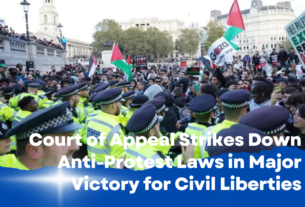LONDON The United Nations Human Rights Committee has urged the UK government to end the use of mass surveillance technologies, including facial recognition systems, by law enforcement at public protests. In a statement released today, the committee emphasized that such practices could violate the fundamental rights of individuals, including their right to privacy, freedom of expression, and freedom of assembly.
The UN’s call comes in the wake of growing concerns over the increasing use of surveillance technologies by UK authorities, particularly during large-scale protests where citizens voice opposition to government policies on issues ranging from climate change to economic inequality.
The committee argued that the use of facial recognition and other intrusive surveillance tools could have a chilling effect on individuals’ willingness to participate in protests and exercise their democratic rights. The UN further stressed that such technologies could disproportionately affect marginalized communities and lead to discriminatory practices in law enforcement.
The UK government has yet to issue an official response, but this development adds to the growing debate over the balance between national security and the protection of individual freedoms. Critics have long warned that the expanding use of surveillance technology in public spaces could erode privacy rights, particularly for those engaging in peaceful protest or advocating for political change.
This is not the first time the UN has weighed in on the UK’s surveillance practices, and the call for a ban on such technologies marks another significant moment in the ongoing global conversation about the intersection of technology, human rights, and democracy.




